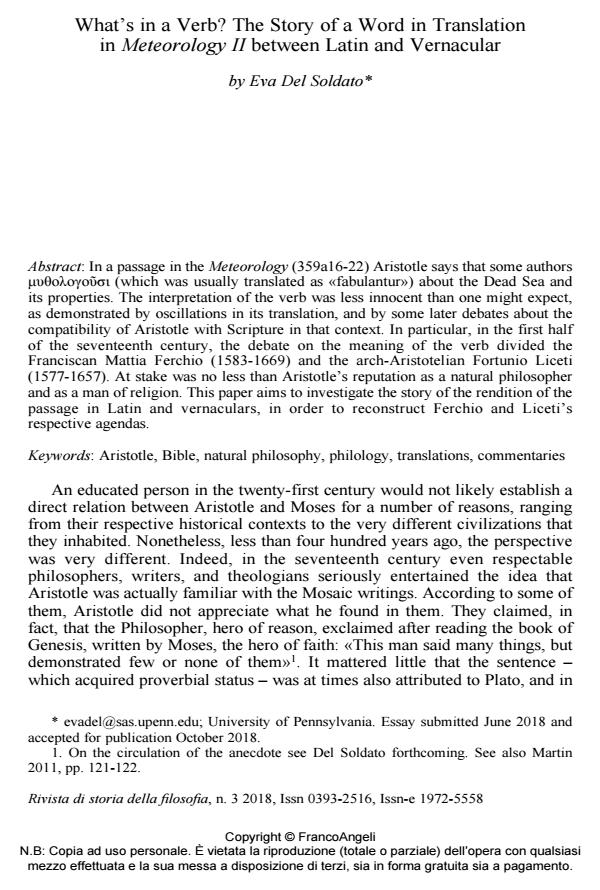What’s in a Verb? The Story of a Word in Translation in Meteorology II between Latin and Vernacular
Titolo Rivista RIVISTA DI STORIA DELLA FILOSOFIA
Autori/Curatori Eva Del Soldato
Anno di pubblicazione 2019 Fascicolo 2019/2
Lingua Inglese Numero pagine 16 P. 327-342 Dimensione file 190 KB
DOI 10.3280/SF2019-002009
Il DOI è il codice a barre della proprietà intellettuale: per saperne di più
clicca qui
Qui sotto puoi vedere in anteprima la prima pagina di questo articolo.
Se questo articolo ti interessa, lo puoi acquistare (e scaricare in formato pdf) seguendo le facili indicazioni per acquistare il download credit. Acquista Download Credits per scaricare questo Articolo in formato PDF

FrancoAngeli è membro della Publishers International Linking Association, Inc (PILA), associazione indipendente e non profit per facilitare (attraverso i servizi tecnologici implementati da CrossRef.org) l’accesso degli studiosi ai contenuti digitali nelle pubblicazioni professionali e scientifiche.
In a passage in the Meteorology (359a16-22) Aristotle says that some authors µ????????s? (which was usually translated as «fabulantur») about the Dead Sea and its properties. The interpretation of the verb was less innocent than one might expect, as demonstrated by oscillations in its translation, and by some later debates about the compatibility of Aristotle with Scripture in that context. In particular, in the first half of the seventeenth century, the debate on the meaning of the verb divided the Franciscan Mattia Ferchio (1583-1669) and the arch-Aristotelian Fortunio Liceti (1577-1657). At stake was no less than Aristotle’s reputation as a natural philosopher and as a man of religion. This paper aims to investigate the story of the rendition of the passage in Latin and vernaculars, in order to reconstruct Ferchio and Liceti’s respective agendas.�
Parole chiave:Aristotle, Bible, natural philosophy, philology, translations, commentaries
Eva Del Soldato, What’s in a Verb? The Story of a Word in Translation in Meteorology II between Latin and Vernacular in "RIVISTA DI STORIA DELLA FILOSOFIA" 2/2019, pp 327-342, DOI: 10.3280/SF2019-002009